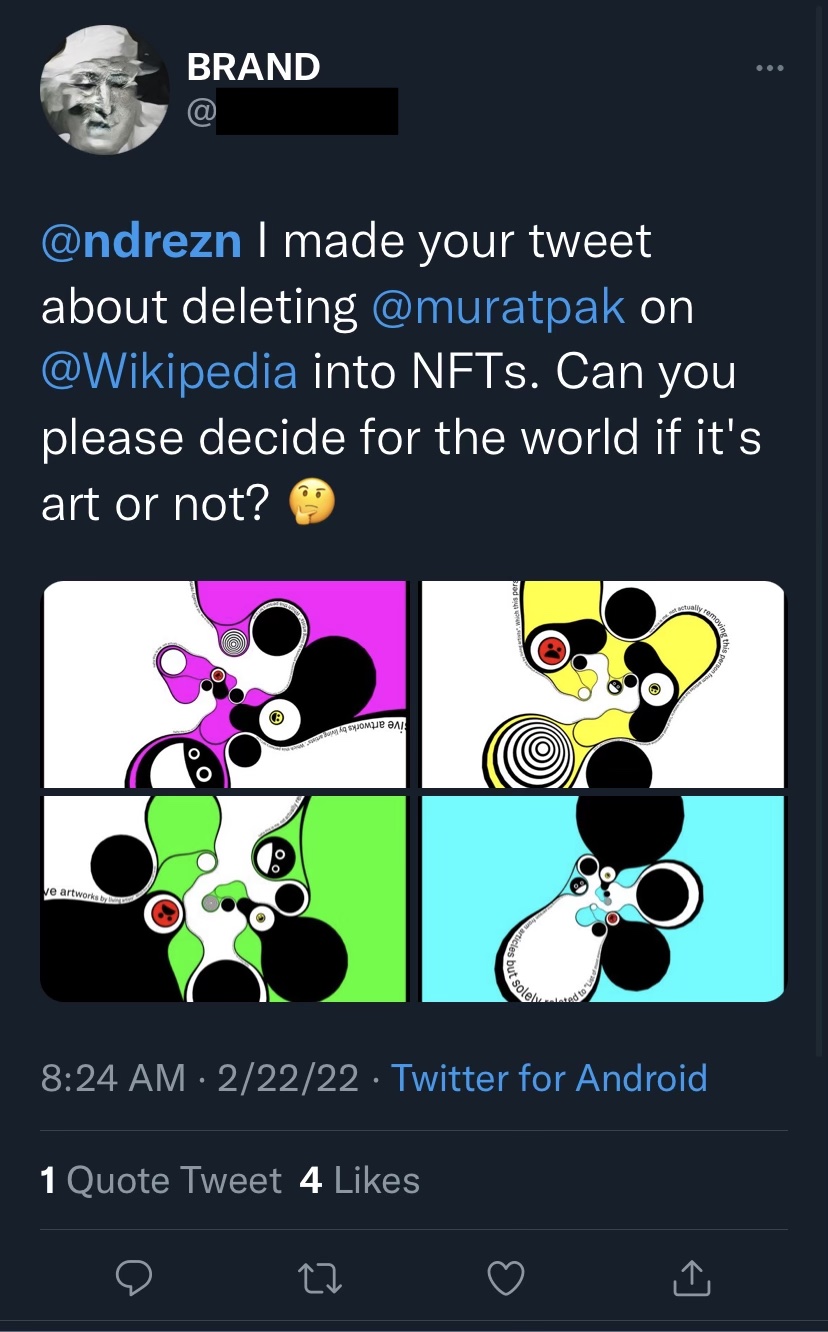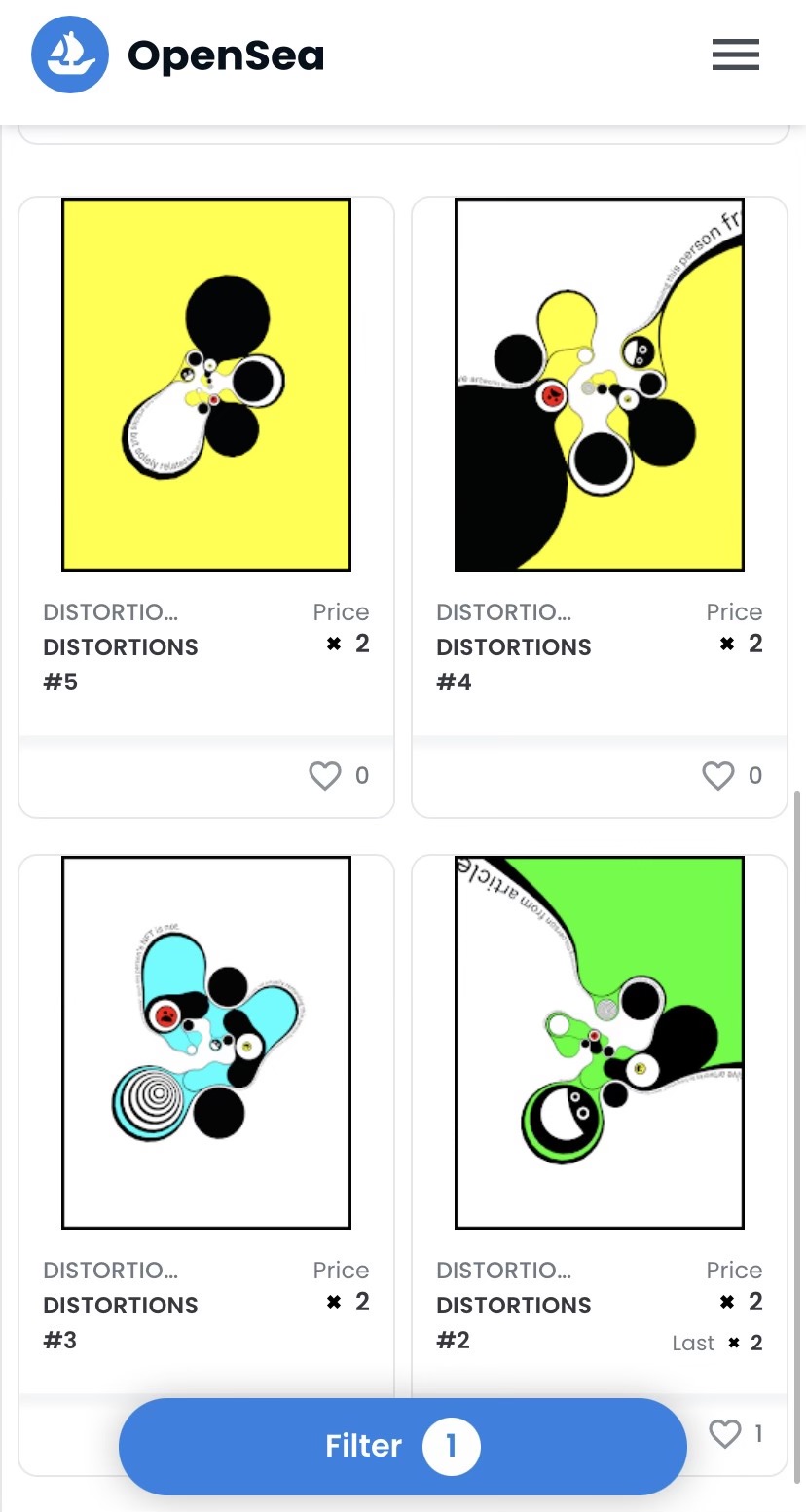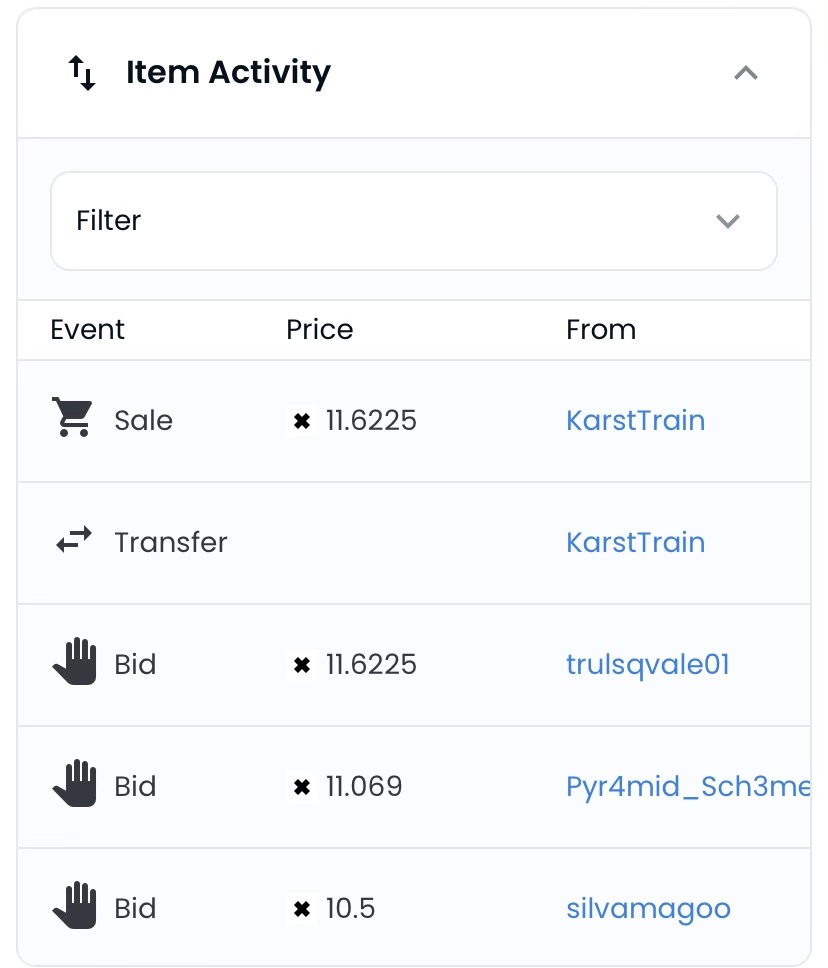Getting doxxed and hanging out on Wikipedia
January 19, 2022
In early December 2021, I visited the Broad Museum in Los Angeles. It’s a public museum that hosts the private collection of Eli and Edyth Broad, a billionare philanthropist couple who generated their wealth in the insurance business. They have on display there Rabbit, a notable Jeff Koons sculpture.
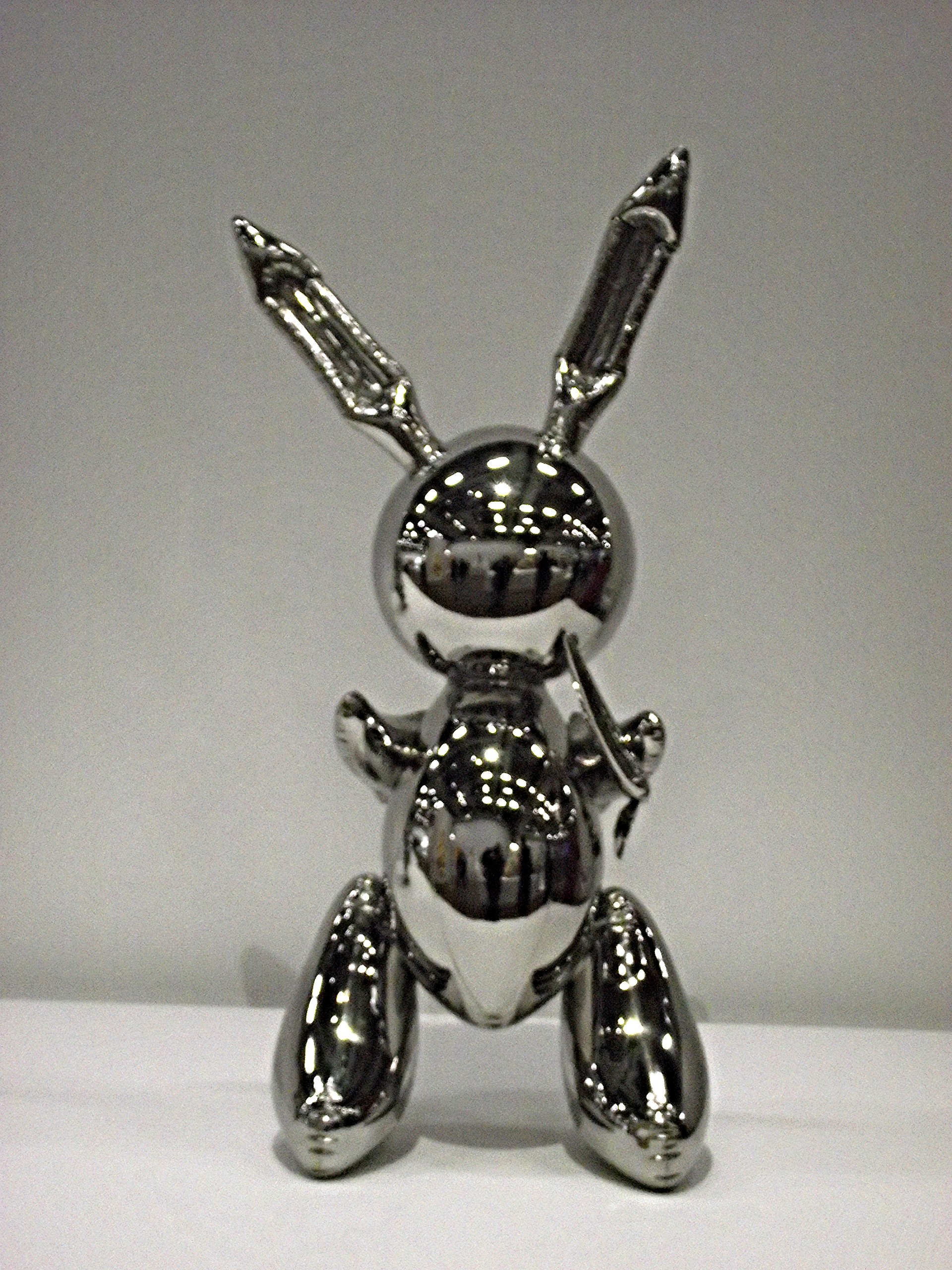
I talked for a bit with one of the staff members in the room with the sculpture, who mentioned off-hand that the sculpture had sold for more than $150 million. I took a look at the Wikipedia article on the most expensive sales: List of most expensive artworks by living artists. Turns out that Rabbit actually sold for $91.1 million, a lower number but still confirming the insanity that is modern art collection, appreciation, and sales.
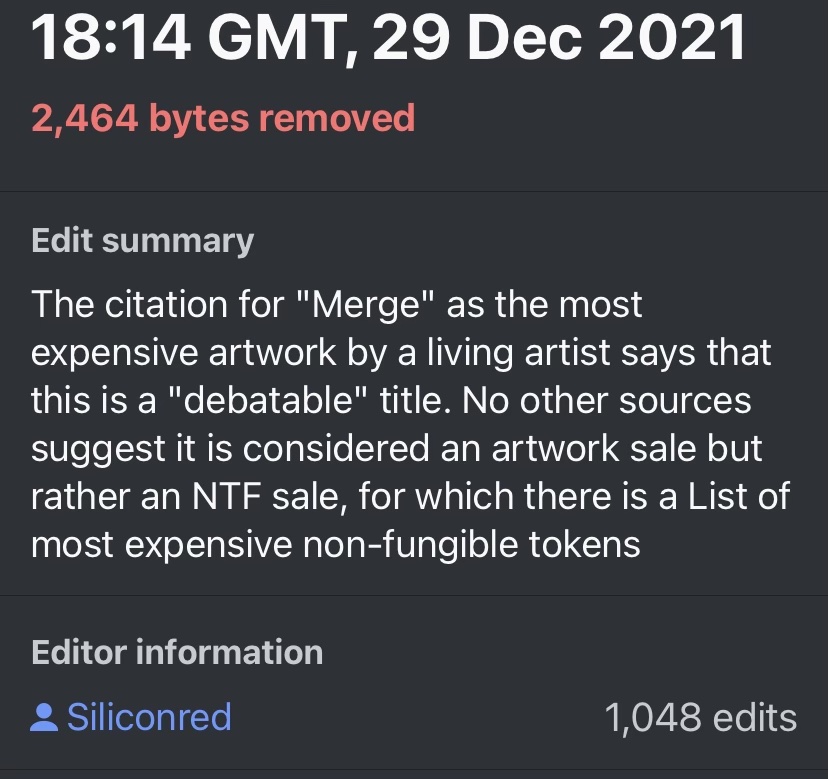
Two sales on the list were by artists I didn’t know. Both were sales of NFTs at around $70 and $90 million, and both sold in 2021. I didn’t recognize the names of the people who created either. The Wikipedia entry on one of the creators, Murat Pak, read like marketing, and the sources for the sale on the list article were ambiguous. I removed the item from the list of artworks and cleaned up the Pak article a bit, simultaneously opening a conversation on the talk page about the change I’d made. I’d made similar changes before to an entry on the digital “influencer” Miquela, another article about a digital creator that appeared to have been written by editors with a significant conflict of interest.
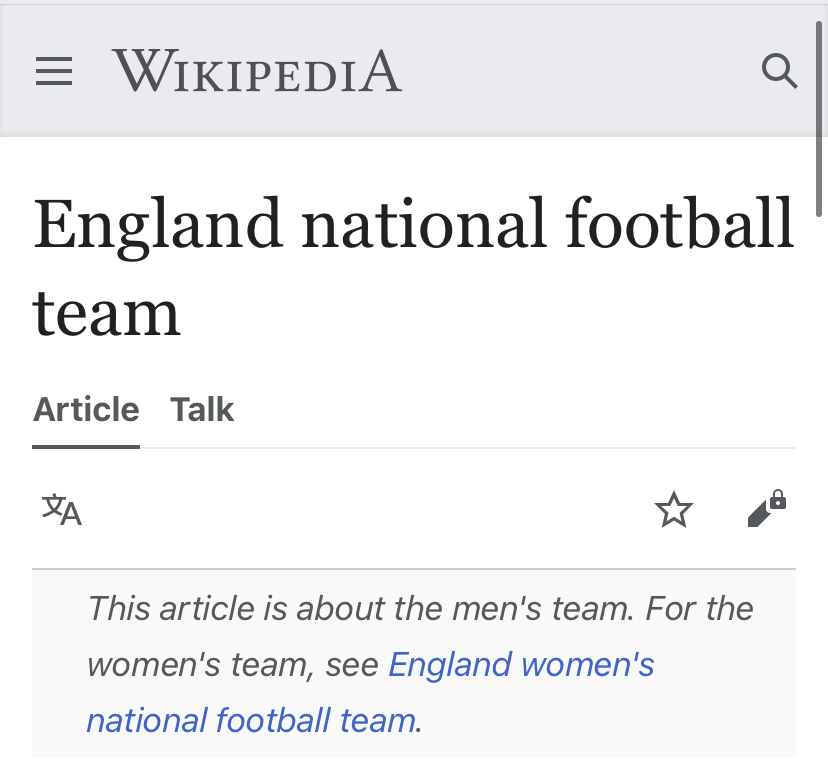

My editing patterns tend to come in spurts. In the past, I’ve been involved in conversations about whether Stanley Kubrik’s article should have an infobox and why the England women’s national football team article has a gender modifier but the England men’s national team doesn’t.
It’s frequent that people will be aggressive with Wikipedia policy to protect their biases in these discussions: In the latter, editors were accused of using Wikipedia’s primary topic policy to shield from androcentrism. Policy and guidelines on Wikipedia, written by Wikipedians, are both significant and old. By March 2007, over 80% of Wikipedia’s existing policy pages had already been created. Many of these policies are solid: No original research, reliable sources, neutral point of view. Others are more frustrating to work around. Policy-based arguments for and against the inclusion of certain information tend to be emphasized over knowledge of the subject matter. In essence, knowledge of how to edit is the most important aspect in having changes “stick”. Although I agree with one consequence of this, which is that the layperson can engage in high-level debates and discussions, the emphasis on policy makes it difficult for newcomers to break in, even if they are knowledgeable on a topic. But more often, the barrier to entry is based soley on the assumption that some other expert editor will just get involved anyway, which is rarely the case: There were fewer individual editors engaging in this NFT discussion on Wikipedia than there were news outlets covering it.
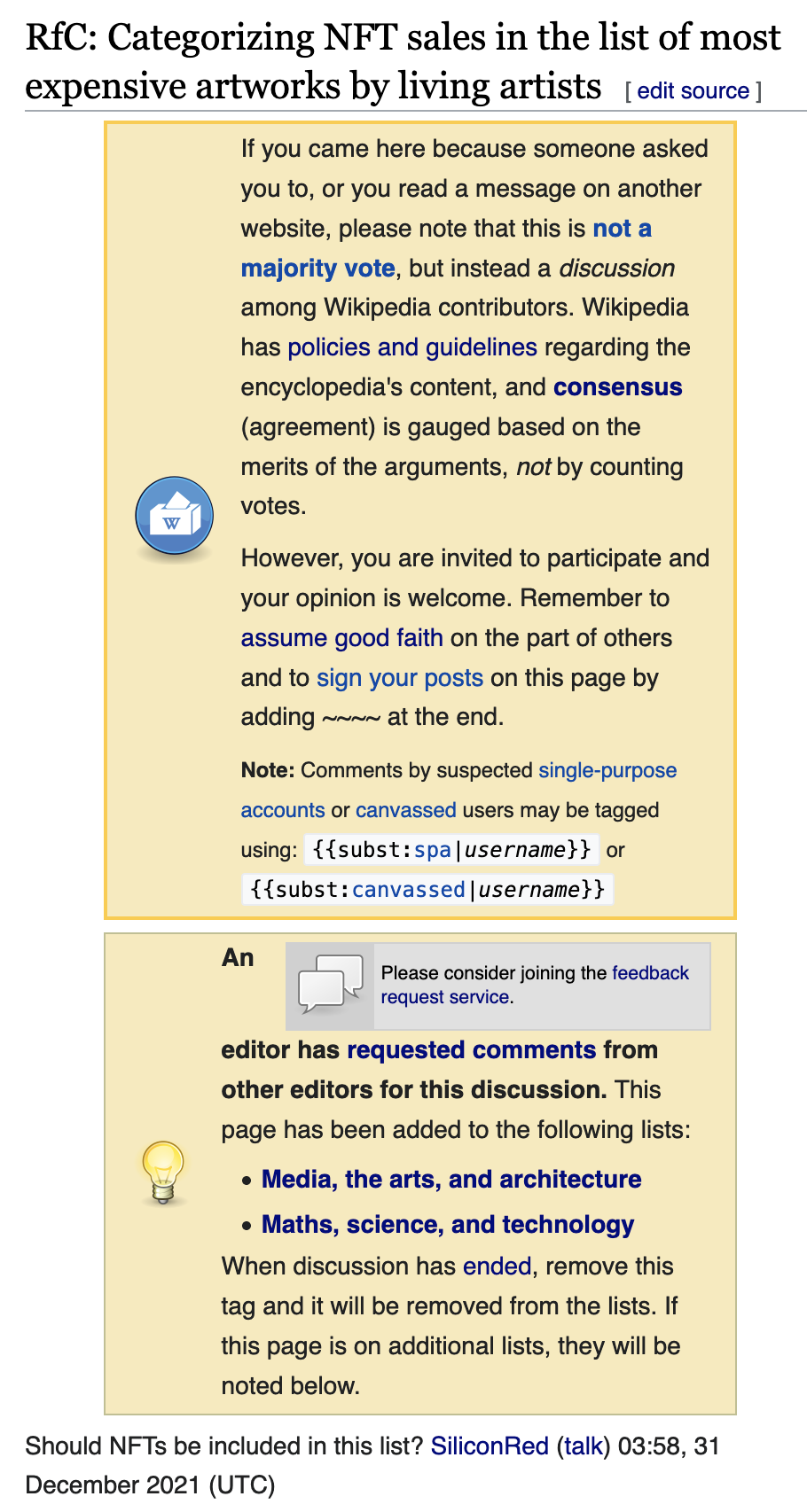
I opened a formal request for comment (RfC) to specifically ask whether NFTs should be included in the article. My comments rested on repeating my original edit summary: Few to no secondary sources and a lack of external consensus meant it was difficult to categorize NFTs among the other sales on the list.
The editor Pmmcurdy — Patrick McCurdy, a professor in humanities at the University of Ottawa, who teaches on Wikipedia subject matter — joined the fray. In fact, McCurdy was the primary author of the article on Pak: Initially, he submitted the article twice and it was deleted twice. The third submission was nominated for deletion, but dozens of anonymous users chimed in immediately following the nomination, and the article was preserved. It’s a really weird set of comments to read through. McCurdy represented the only consistent voice in support of including NFTs — seeming to take it personally that Pak’s NFT wasn’t included in the article. (Murat Pak? Patrick McCurdy? Picking up what I’m putting down? My conspiracy of the day.)
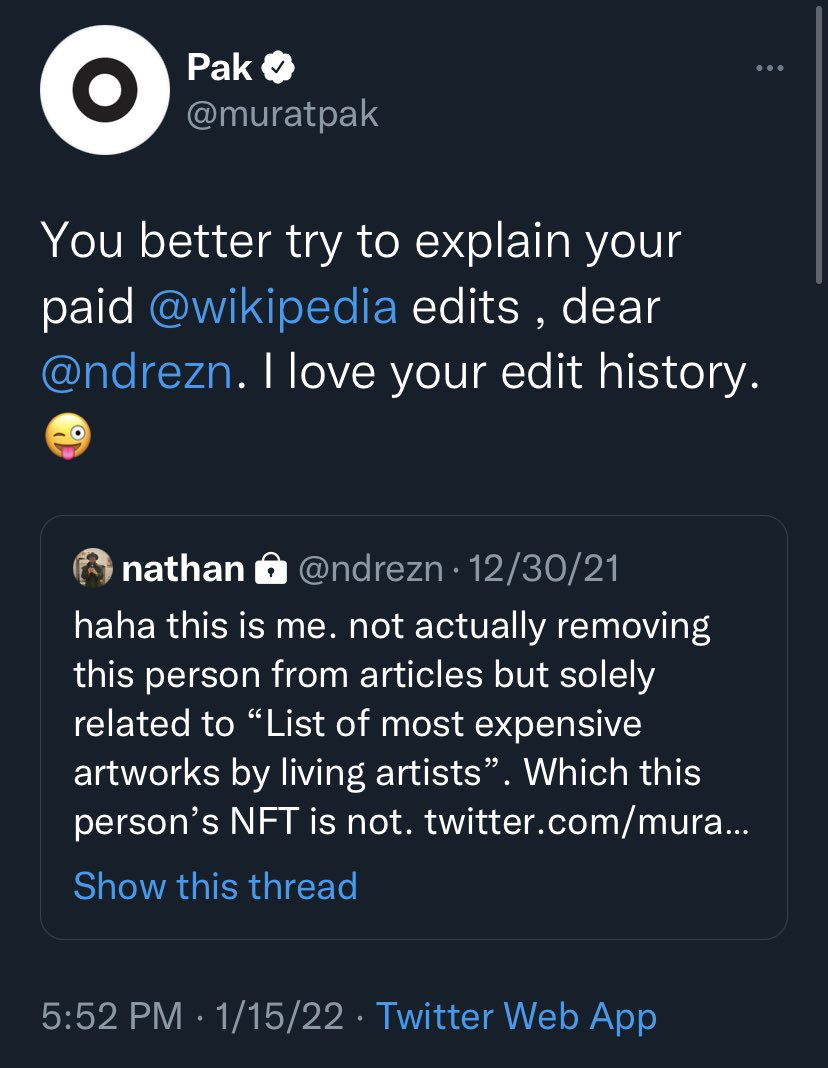

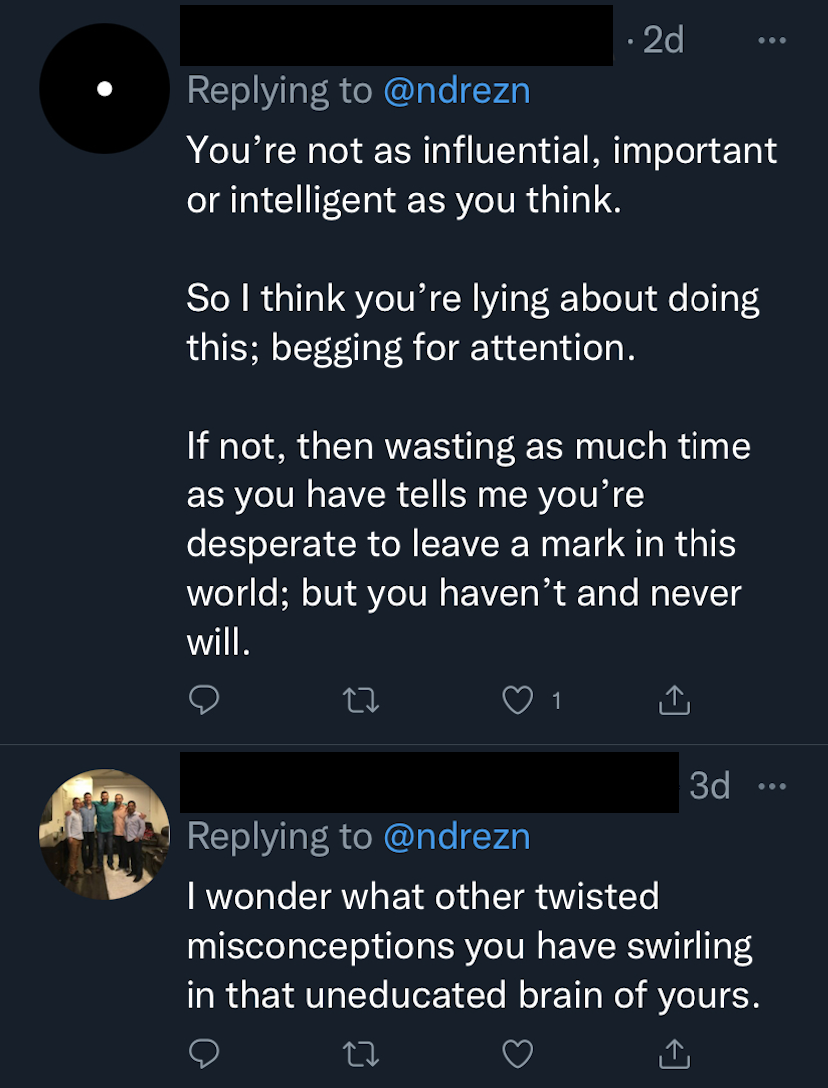
The RfC picked up the attention of several press outlets, and Twitter. The debate was suddenly around the question, “Are NFTs art?” The NFT creator in question, Pak, started tweeting about me. Which was weird. Imagine if Jeff Koons was complaining about his coverage in Encylopaedia Britannica. Folks from NFT Twitter started hanging out in my replies and heckling me for drinking tap water (???) and spending their Wikipedia donations (???).
As of time of publishing, both NFTs have been removed from the list (I didn’t do this). Maybe they’ll be added back, maybe they won’t; luckily, no Wikipedia entry is static, because public knowledge is changing all the time. There’s a certain irony that the folks drawn to NFTs, a supposed decentralized sales mechanism, are also driven to ridicule, critique, and manipulate a free, public, and decentralized encyclopedia.

At the end of the day, it’s worth remembering that Wikipedia isn’t an arbiter of knowledge or a source of breaking news, even though it’s sometimes read that way. It’s a slow moving, constantly changing archive of the outside world. There’s no greater agenda. Since being drawn back into the honeypot of Wikipedia editing, I’ve published a new article and have a couple more in their draft stages. These conversations are interesting: I’d encourage more folks to sign up, start editing, and come hang out with me on talk pages.
Update, March 1 2022.
